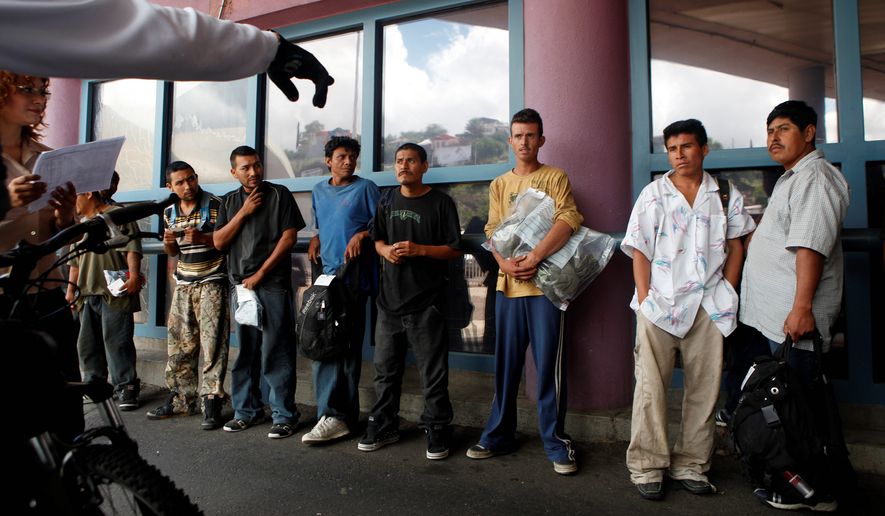The administration warned a federal judge Monday to stay out of the debate over President Obama’s deportation amnesty, saying decisions about whom to deport fall squarely within the executive’s job description, “which this court lacks authority to review.”
[SPONSORED: STOP AMNESTY HERE]
In its first extended legal filing in one of the court challenges to the new amnesty, the Justice Department says courts have long held that an agency’s decision whether or not to prosecute someone or to enforce the law is entitled to “absolute discretion.”
“Federal courts sit to decide cases and controversies, not to resolve disagreements about policy or politics,” said Joyce R. Branda, the acting assistant attorney general who took the lead on filing the brief.
Ms. Branda said the administration had to impose the new deportation amnesty because immigration enforcement has become too costly in recent years, outpacing the amount of money Congress provides, so picking and choosing which illegal immigrants to deport is the best use of taxpayers’ money.
Administration lawyers said the new policy is designed to carry out, not to thwart, what they believed was Congress’s intent that the Homeland Security Department only go after recent border crossers and more serious criminals in the interior of the U.S.
SEE ALSO: Obama amnesty to be tested by immigration service nominee
And Ms. Branda also said the policy could be “revoked at any time,” arguing that uncertainty also means the program is beyond the court’s scope.
The filing came in a case filed by Sheriff Joe Arpaio from Maricopa County, in Arizona. Sheriff Arpaio argues the president’s amnesty will lead to more illegal immigrants in the future, which means his department will have to deal with more crime and a higher workload. That higher workload, he argues, is an injury that gives him standing to sue.
But the Justice Department said it was speculative to believe the policy would lead to more illegal immigration. Homeland Security has announced it will pull resources from the interior, where they were going after illegal immigrants, and send them to the border, where they may be able to aid the fight against new illegal border crossers.
The case is being heard in federal district court in Washington, D.C. A hearing on Sheriff Arpaio’s request for a preliminary injunction takes place next week.
Another case, filed by Texas and 19 other states, is pending in federal district court in Texas.
In Monday’s filing, administration lawyers bristled at the term “amnesty,” arguing that because officials will have to approve every case, it’s not a blanket forgiveness. They also argued the amnesty “does not grant legal status to any alien.”
SEE ALSO: Ted Cruz: ‘Open question’ on whether GOP defunds amnesty next year
The administration considers them “lawfully present,” and eligible for work permits, but says that doesn’t equate with “lawful status.”
• Stephen Dinan can be reached at sdinan@washingtontimes.com.




Please read our comment policy before commenting.